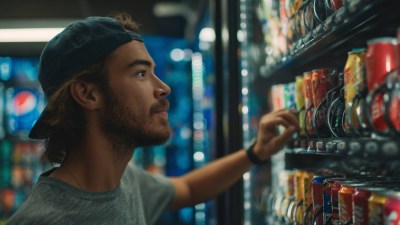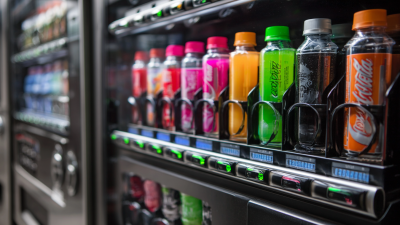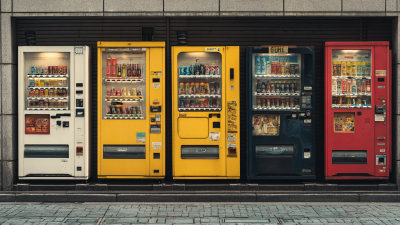Menu
Contact Us: 416.615.1555 | sale@booksvendingmachine.com
Menu
Contact Us: 416.615.1555 | sale@booksvendingmachine.com
In today’s competitive market, the selection of the right drink machines can significantly impact customer satisfaction and business efficiency. According to a recent report by IBISWorld, the beverage vending machine industry has seen a steady growth rate of approximately 3.5% annually, reflecting an increasing demand for convenience and variety in beverage options. As consumers' preferences evolve towards healthier and premium choices, investing in state-of-the-art drink machines is no longer just a trend; it is a necessity for businesses aiming to thrive. Furthermore, a survey conducted by VendingMarketWatch indicates that 72% of customers perceive drink machines as a valuable addition to retail environments, underscoring the importance of choosing machines that align with customer needs and enhance overall service quality. This guide will explore the essential factors to consider when selecting the best drink machines tailored to your business needs, ensuring that you stay ahead in this dynamic market.
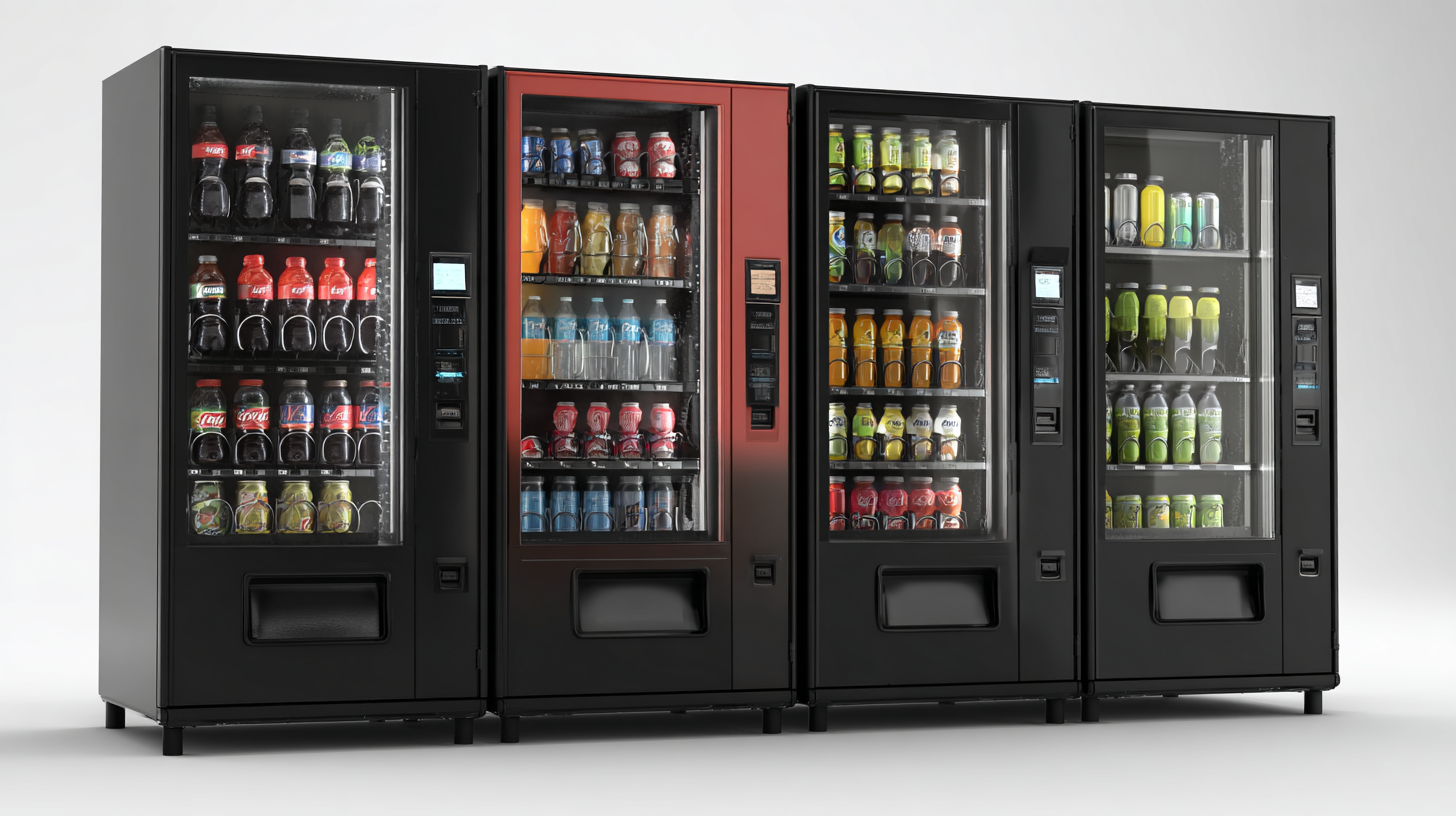
When it comes to selecting the right drink machines for your business, understanding the various types available is crucial. Vending machines are a popular choice, providing convenience and immediate access to a variety of beverages. These machines can be stocked with anything from soft drinks to bottled water, catering to diverse customer preferences. By strategically placing vending machines in high-traffic areas, you can maximize sales and ensure customer satisfaction.
Slushie machines are another appealing option, especially for businesses targeting a younger demographic or those in warmer climates. Offering frozen, flavored beverages can set your establishment apart and attract customers looking for a refreshing treat. Keep in mind that slushie machines require regular maintenance to ensure optimal performance and delicious results.
Tips: When evaluating drink machines, consider your target audience and setting. For instance, a sports facility might benefit from slushie machines for children, while an office building could prioritize traditional vending machines. Additionally, always compare prices and energy efficiency to find the best machines that align with your budget and sustainability goals.
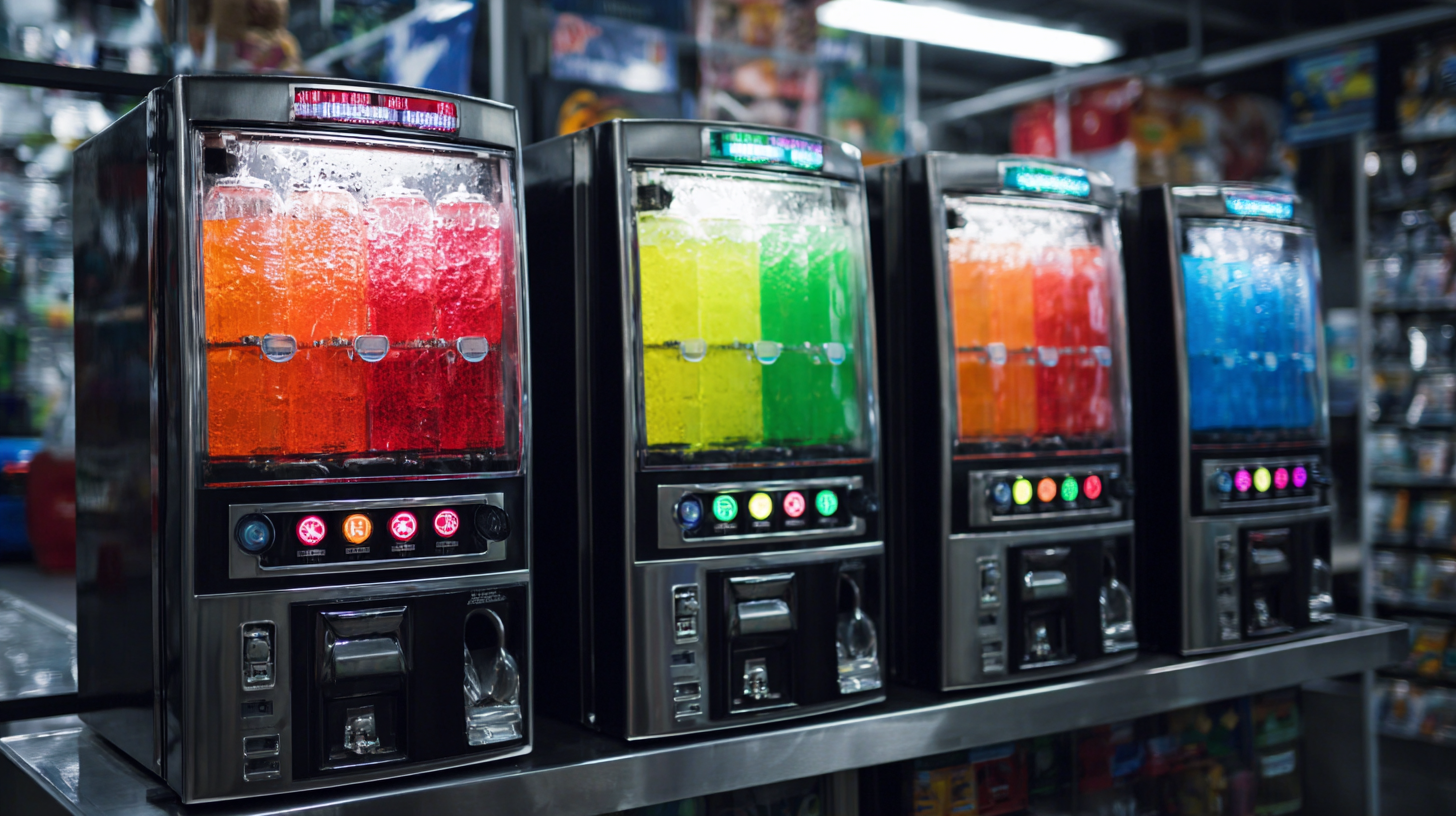
When selecting drink machines for your business, understanding the impact of foot traffic is crucial. According to a study by the International Council of Shopping Centers, locations with high foot traffic can increase impulse purchases by up to 30%. In retail environments such as shopping malls or busy urban areas, this means that having a strategically placed drink machine can significantly boost sales. High visibility and accessibility are key, making it essential to analyze peak traffic times and consumer behavior in your specific location.
Moreover, considering the demographic of foot traffic plays a pivotal role in your drink machine selection. For instance, businesses situated near colleges may benefit from machines offering energy drinks and affordable snack options, as research by Mintel indicates that 60% of students prefer grab-and-go beverages. Conversely, locations near corporate offices might find success with machines that provide premium coffee and healthy drink options, targeting professionals looking for a quick caffeine fix. Tailoring your drink machine offerings to the habits and preferences of the foot traffic can maximize both customer satisfaction and revenue potential.
When selecting the best drink machines for your business needs, it's crucial to evaluate both initial investment and operating costs. A report by IBISWorld indicates that the vending machine industry is projected to grow by 2.6% annually, highlighting the increasing demand for efficient drink solutions. The upfront costs of drink machines can range from $3,000 to $8,000 depending on features and capacity. Choosing a machine that fits your budget should also consider warranty and support options to minimize long-term expenses.
Operating costs, which include maintenance, electricity, and inventory replenishment, can significantly impact your bottom line. A study from the National Automatic Merchandising Association (NAMA) suggests that energy-efficient machines can save businesses up to 30% on electricity bills annually. Therefore, evaluating energy ratings and potential savings is key.
Tips: Always calculate your projected return on investment (ROI) before purchase to ensure profitability. Additionally, consider seasonality in your product selection to optimize stock levels and reduce waste. By taking a strategic financial approach, you can choose drink machines that align with your business goals while ensuring sustainable operations.
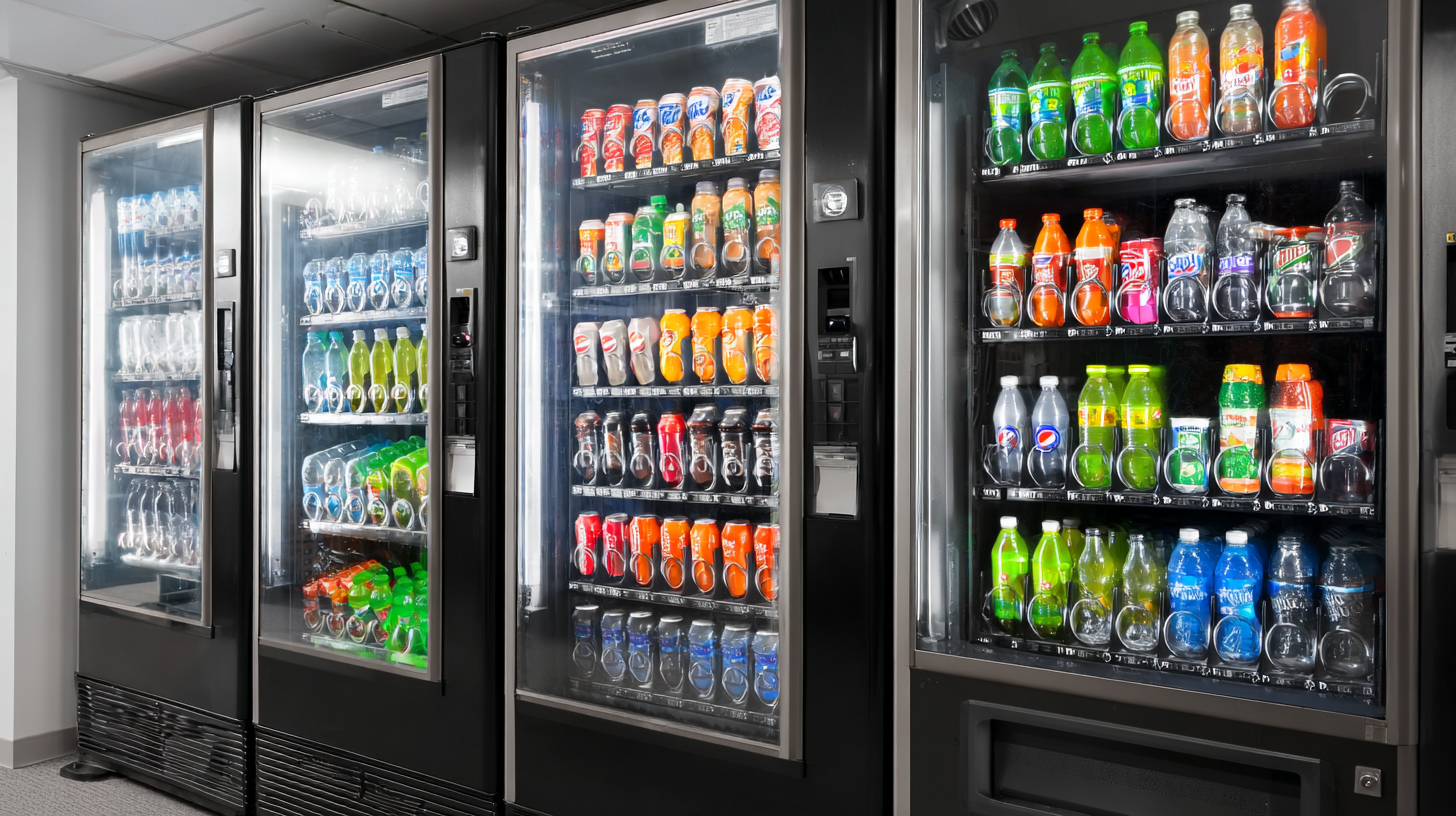
When selecting the best drink machines for your business needs, it’s essential to consider the trending beverages that reflect consumer preferences.
For instance, the ready-to-drink (RTD) alcoholic beverages market is projected to showcase a robust growth rate of 7.99%, indicating a rising demand for convenient and varied alcohol options. This trend suggests that businesses opting for drink machines should consider incorporating RTD options to attract customers looking for diverse choices.
Additionally, the soft drink market is thriving, with the food sweetener market expected to reach a valuation of $1.042 billion by 2025, growing to $1.390 billion by 2033 at a compound annual growth rate of 3.67%. This growth will impact the types of machines businesses choose; investing in machines that cater to sweetened beverage trends could prove beneficial.
Moreover, as consumer interest shifts towards healthier options, businesses might look into drink machines capable of delivering low-calorie or sugar-free beverages, aligning with current health-conscious consumer behavior.
When selecting drink machines for your business, maintenance and support considerations play a crucial role in ensuring their longevity and effectiveness. A well-maintained machine not only enhances customer satisfaction but also reduces downtime, leading to higher productivity and profitability. It's essential to evaluate the manufacturer's reputation for service and support, as a reliable vendor can provide quick assistance and replacement parts when needed. Regular maintenance schedules should also be established to keep machines in peak operating condition, preventing costly repairs and extending their lifespan.
In addition to assessing the machine's technical performance, consider the availability of training and resources for your staff. A comprehensive support system that includes training on proper usage and maintenance can significantly impact the overall performance of your drink machines. Ensure that the chosen machine comes with user-friendly guides and access to customer service support. By prioritizing these maintenance and support considerations, you can make an informed decision that not only meets your immediate business needs but also sets the stage for long-term success in your beverage service operations.


